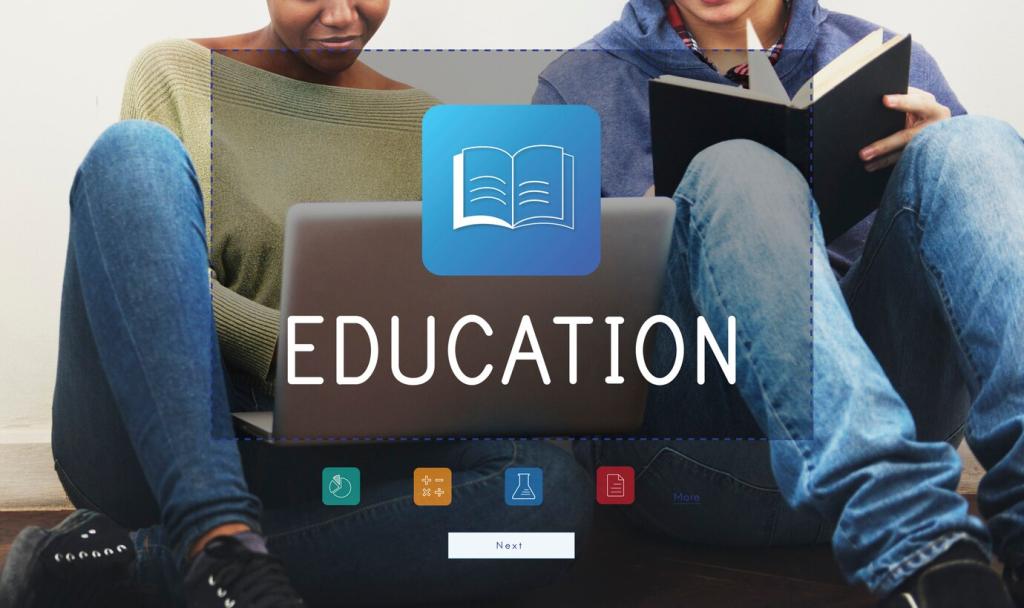Education’s Ripple Effect on Economic Development
Building Human Capital: From Classrooms to Productivity
When workers master reading, numeracy, and critical thinking, firms adopt better processes and reduce costly errors. A single training cycle can streamline workflows, raise quality standards, and expand market opportunities by enabling staff to tackle complex tasks confidently and consistently.
Building Human Capital: From Classrooms to Productivity
A great teacher changes more than test scores; they shape career trajectories. In one industrial town, a stellar math teacher coached seniors to run data checks on factory lines, cutting defects and inspiring internships that later became full-time roles boosting local productivity.


Innovation Engines: Education as the Spark for New Ideas
Universities as Innovation Hubs
Research labs and interdisciplinary courses seed breakthroughs, from cleaner manufacturing to smarter logistics. Partnerships with local firms transform capstone projects into deployable solutions, accelerating the transfer of knowledge that drives economic development in surrounding regions.
Entrepreneurship Born in Lecture Halls
Two classmates turned a final project on low-cost irrigation sensors into a startup that saved water for small farms. Their company hired local technicians, expanded suppliers’ income, and demonstrated how education transforms curiosity into ventures that create jobs and resilience.
Vocational Pathways that Power Industry
Technical and vocational education produces adept machinists, electricians, and coders who keep production lines humming. In one case, apprentices trained on predictive maintenance reduced downtime dramatically, boosting output and profitability while anchoring stable employment in the community.
Closing Gaps: Education and Inclusive Growth
Gender Equity Compounds Growth
Educating girls increases labor force participation, entrepreneurship, and household investment in health and learning. One coastal district expanded secondary scholarships for young women and saw new family businesses, stronger savings habits, and rising neighborhood incomes within a few years.
Rural Classrooms, Urban Gains
Improved rural schools feed skilled graduates into local enterprises and city industries. A remote village opened a digital learning center; graduates later filled urban tech-support roles and sent remittances back, funding small shops and services that diversified the rural economy.
Mobility Across Generations
Education breaks cycles of poverty by aligning skills with good jobs. A community scholarship helped first-generation college students become engineers and teachers, whose steady incomes supported siblings’ schooling and financed neighborhood improvements that attracted new businesses and services.

Health, Demography, and the Productivity Loop
Workers who understand safety guidelines and preventive care miss fewer days and sustain higher output. After a local training program included health modules, firms reported fewer accidents, steadier schedules, and teams that collaborated better under pressure.

Health, Demography, and the Productivity Loop
Education often leads families to plan and invest more per child—books, tutoring, and time. Over time, this concentrated investment translates into higher skills and earnings, strengthening the economy’s capacity to innovate and adapt to new industries.
The Digital Economy: Skills for the Next Wave
Reading and numeracy enable workers to interpret dashboards, troubleshoot tools, and communicate insights. As employees gain data skills, even small businesses forecast demand better, reduce waste, and compete in broader markets without sacrificing quality or reliability.
The Digital Economy: Skills for the Next Wave
Fast-changing tools require continuous upskilling. Short courses and micro-credentials help mid-career workers pivot into higher-value roles. Share your reskilling story in the comments, and subscribe to receive practical guides for navigating the digital transition.
The Digital Economy: Skills for the Next Wave
When schools co-design curricula with employers, graduates hit the ground running. A logistics firm’s collaboration with a local college created a certification in route optimization, lifting delivery reliability and opening promotion pathways for frontline staff.
Policy Playbook: Financing and Governance that Work
Needs-based scholarships, tutoring, and school meal programs can lift achievement where it lags most. Policymakers who track attendance, completion, and earnings see which interventions truly drive economic development and scale them with confidence.
Policy Playbook: Financing and Governance that Work
Open dashboards on learning and employment outcomes empower communities to advocate for improvements. Businesses respond by partnering with high-performing schools, aligning internships with local growth sectors that create sustainable jobs and shared prosperity.


